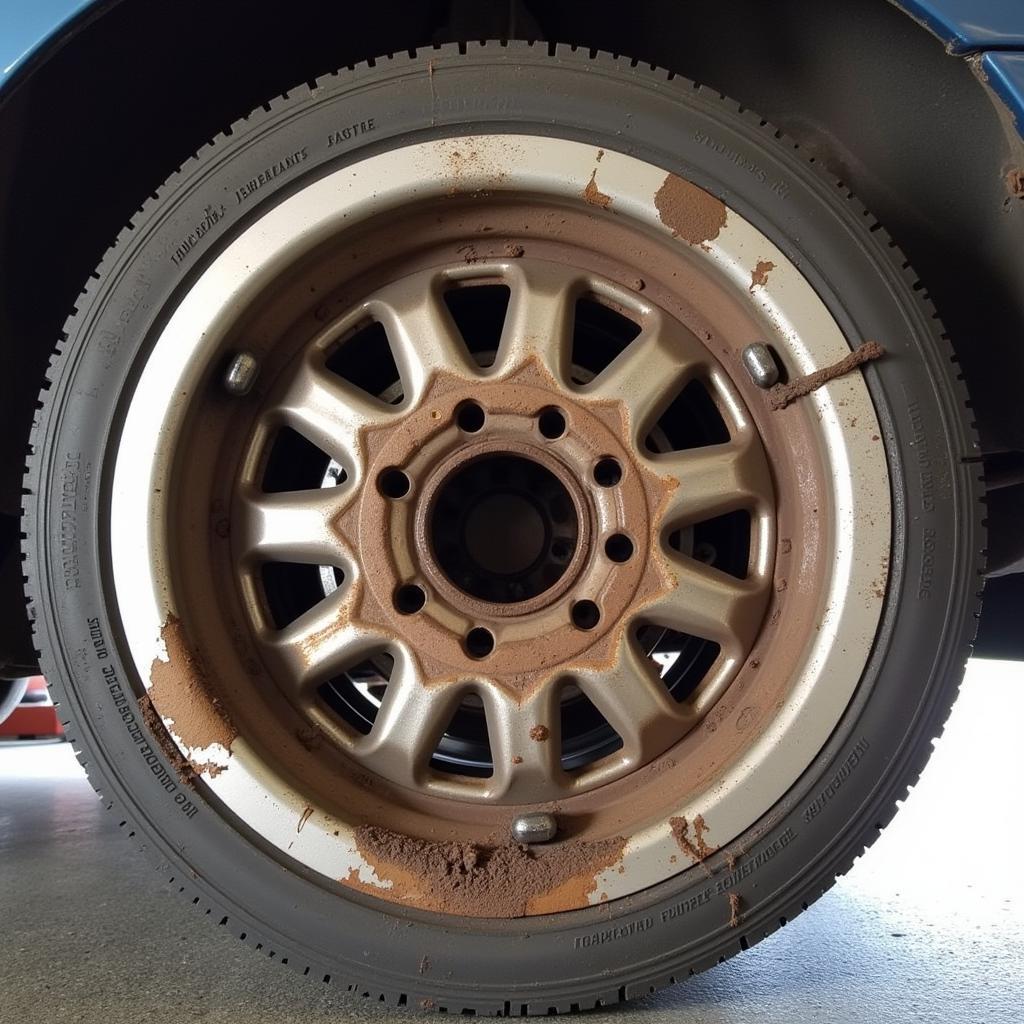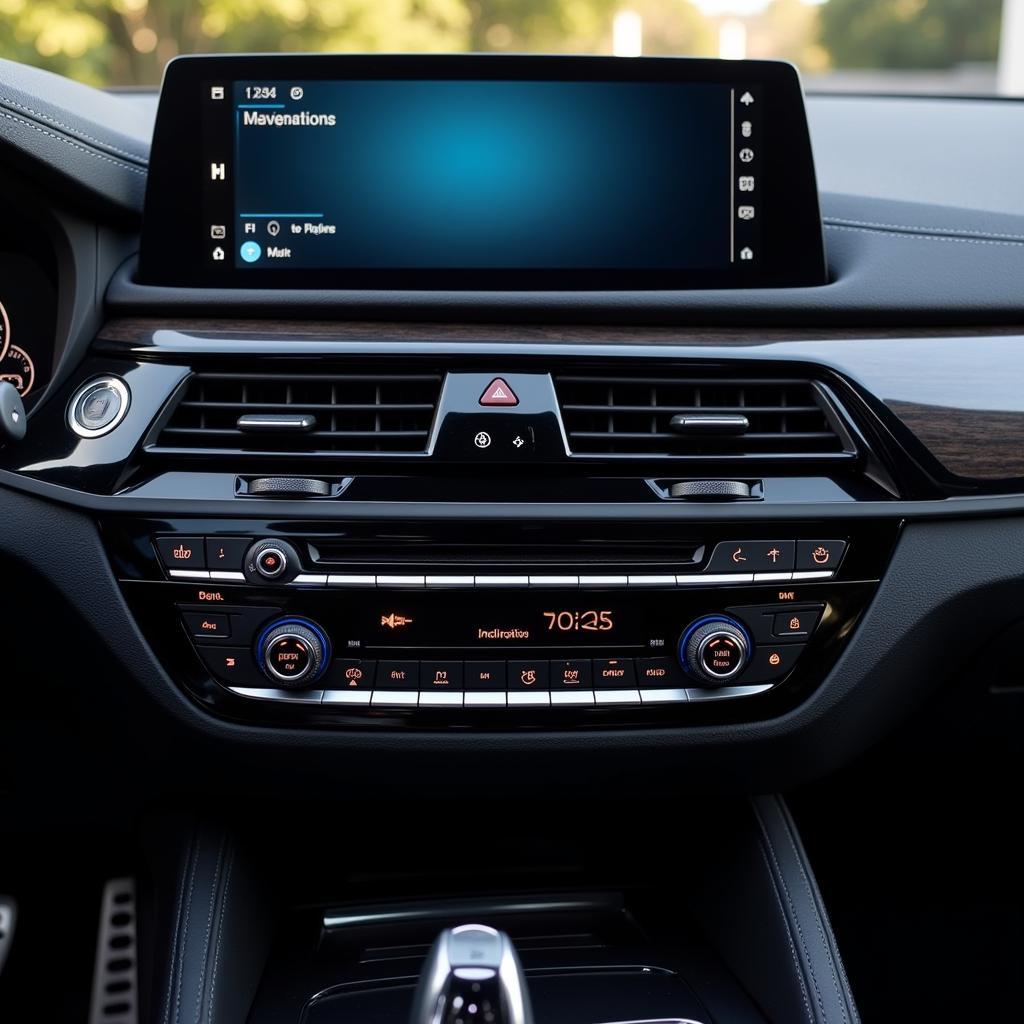If you’re asking yourself, “why does my BMW sound loud?”, you’re not alone. Many BMW owners experience unexpected noises from their vehicles, ranging from a subtle hum to a pronounced roar. Understanding the reasons behind these sounds is crucial for maintaining your BMW’s performance and longevity. This article will delve into the common causes of excessive noise in BMWs, helping you diagnose the problem and find the right solution.
Several factors can contribute to a loud BMW. From issues with the exhaust system to problems with the tires, a noisy BMW can indicate a variety of underlying issues. Let’s explore some of the most frequent culprits.
Common Causes of Loud BMW Sounds
Exhaust System Issues
One of the most common reasons for a loud BMW is a problem with the exhaust system. A damaged muffler, a cracked exhaust manifold, or a leaking exhaust pipe can all create excessive noise. These issues not only make your BMW sound loud but can also affect engine performance and fuel efficiency. If you suspect an exhaust issue, it’s crucial to have it inspected and repaired promptly. For those interested in modifying their BMW’s sound, check out our article on bmw g30 sound upgrade.
Tire Problems
Worn-out or improperly inflated tires can also contribute to a noisy ride. Uneven tire wear can create a humming or rumbling sound, while low tire pressure can amplify road noise. Regularly checking your tire pressure and ensuring proper wheel alignment can significantly reduce unwanted noise and improve fuel economy.
Brake Issues
Squealing or grinding brakes are another common source of noise in BMWs. Worn brake pads, warped rotors, or issues with the brake calipers can all create these unpleasant sounds. Ignoring these signs can lead to further damage and compromise your safety.
Engine Problems
A loud engine can be a sign of a serious underlying problem. A knocking sound can indicate worn engine bearings, while a ticking sound might be a sign of a valve train issue. These problems require immediate attention from a qualified mechanic. If you’re curious about the sound of different BMW engines, take a look at our article on bmw m3 competition sound.
Diagnosing the Problem
Diagnosing the cause of a loud BMW requires a systematic approach. Start by listening carefully to the type of noise and when it occurs. Does the noise happen only at certain speeds or during specific maneuvers? Does it change when you accelerate or brake? This information can help you narrow down the possible causes. You can also check for any visible signs of damage, such as leaks, cracks, or worn components.
Why is my BMW so loud at high speed?
If your BMW is particularly loud at high speeds, the issue might be related to aerodynamic noise, tire noise, or a problem with the wheel bearings. Aerodynamic noise is more common in older models and can be caused by worn weather stripping or loose body panels.
Why does my BMW sound like a diesel?
If your BMW sounds like a diesel engine, even though it’s gasoline-powered, it could indicate a problem with the timing chain, worn-out hydraulic lifters, or a failing fuel injector.
“A properly maintained BMW should operate quietly and smoothly,” says Jake Carter, Master Automotive Technician. “Unusual noises are often the first sign of a developing problem, and addressing them early can prevent costly repairs down the line.”
Solutions and Preventative Measures
Addressing the underlying cause of the noise is the best solution. This might involve replacing worn parts, repairing damaged components, or adjusting settings. Regular maintenance, such as oil changes, tire rotations, and brake inspections, can help prevent many noise-related issues. For information on specific BMW exhaust sounds, see our article on the 2023 bmw m340i exhaust sound. Interested in upgrading your car’s audio system instead? Check out our resource on factory replacement audio speakers 2003 bmw 325ci.
“Ignoring unusual noises can lead to more significant and expensive problems,” adds Maria Sanchez, Certified BMW Technician. “Addressing the issue promptly often saves money and ensures the vehicle’s long-term reliability.”
Conclusion
So, why does your BMW sound loud? Several reasons can contribute to this, from minor issues like worn tires to more serious problems like engine damage. Understanding the potential causes and taking proactive steps to diagnose and address the issue can keep your BMW running smoothly and quietly for years to come. You may also be interested in the sound of a bmw s1000rr sc project exhaust sound.
FAQ
- What are the most common causes of a loud BMW? Exhaust system issues, tire problems, and brake issues are among the most frequent causes.
- How can I diagnose the cause of the loud noise? Listen to the type of noise, when it occurs, and look for any visible signs of damage.
- What should I do if my BMW sounds loud? Address the underlying cause by replacing worn parts or repairing damaged components.
- How can I prevent my BMW from becoming loud? Regular maintenance, such as oil changes, tire rotations, and brake inspections can help.
- Is it safe to drive my BMW if it’s loud? It depends on the cause. Some noises are minor, while others can indicate serious problems that require immediate attention.
- Can a loud BMW affect its performance? Yes, issues like exhaust leaks can affect engine performance and fuel efficiency.
- How much does it cost to fix a loud BMW? The cost depends on the cause of the noise and the necessary repairs.
For further information on related topics, explore our other articles on BMW sound upgrades and exhaust systems.
Need Help? Contact us via Whatsapp: +1 (641) 206-8880, Email: CARDIAGTECH[email protected] or visit us at 276 Reock St, City of Orange, NJ 07050, United States. Our customer support team is available 24/7.


